Star project, well-known VC gathering, Wanxiang Summit, a number of guest speech highlights
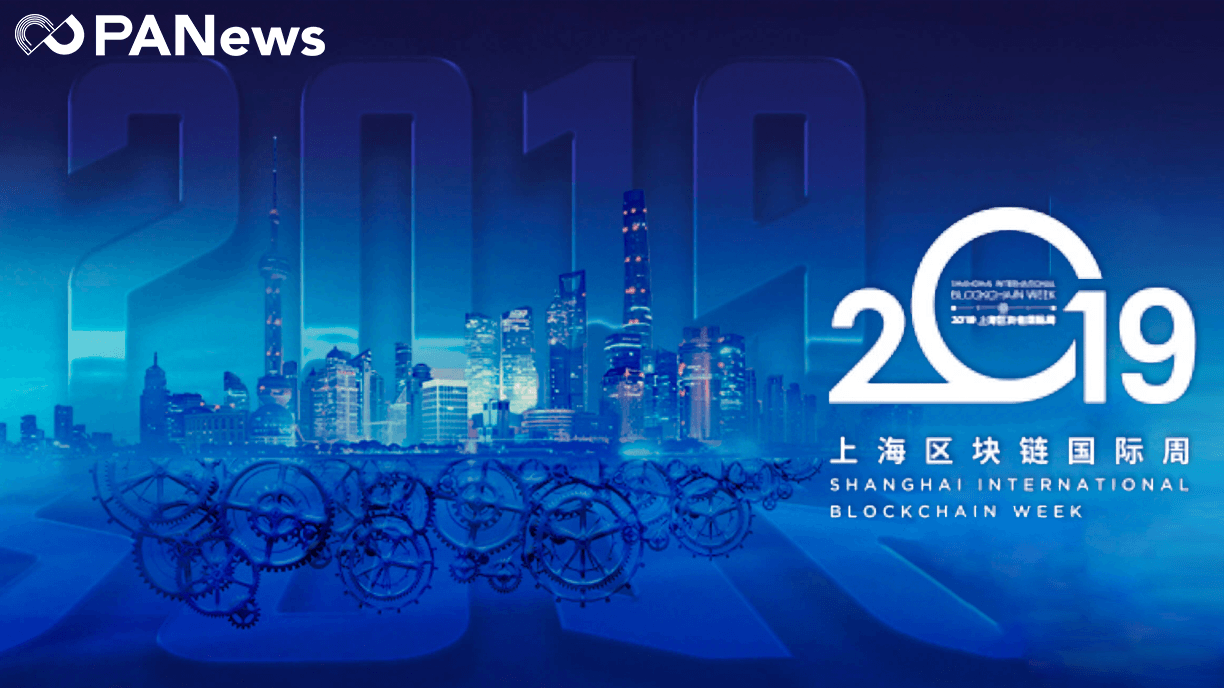
“2019 Shanghai Blockchain International Week” was held from September 14th to September 18th. This year's blockchain week gathers the founders of the mainstream blockchain platform, technology leaders, experts and scholars, representatives of various industry elites, and founders of popular projects. With the theme of “New Ten Years, New Starting Point”, the blockchain has been reviewed for the past ten years. The situation and look forward to the new legend of the next decade.
PANews brings together the wonderful views of the guests and gives you an overview of the important information of the Shanghai Blockchain Week.
O1
- Opinion | ETH Spring is coming?
- The Fed cut interest rates again by 25 basis points, and bitcoin "rocket fuel" is ready.
- Bitcoin continues to remain weak, mainstream currency suspends offensive adjustments pending
Li Lihui, former president of Bank of China:
Digital currency is at the heart of the future global digital economy competition
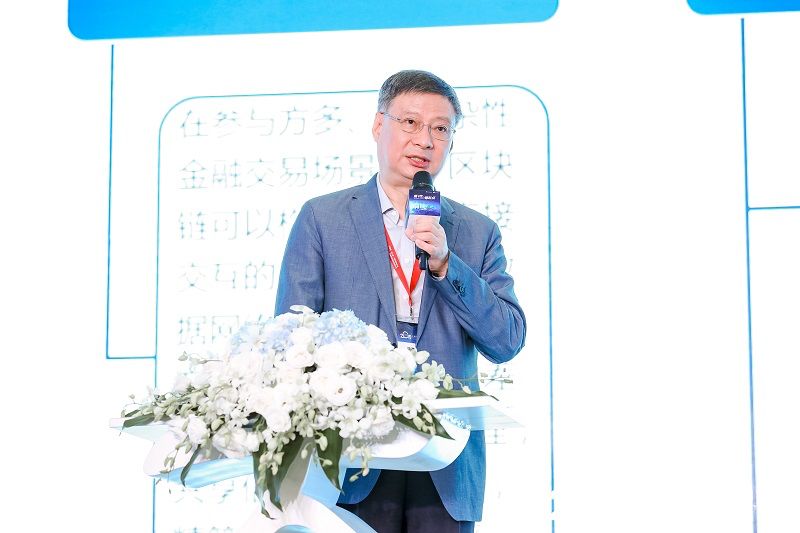
In the past 10 years, digital technology innovation has advanced by leaps and bounds, improving production efficiency and resource allocation efficiency. More importantly, it is changing people's lifestyles and changing the business model of society. We need to answer the question: Is the “change” of the evolution of the new generation of technology to economic structure just improvement and optimization, or change and reconstruction?
The application of blockchain technology is currently not large, and has not yet formed a scale effect, but the up-and-coming structural innovation seems to contain the power of change. First, you can increase the digital trust of commercial credit. The main advantage of digital trust is the ability to build low-cost credit benefits. This will restructure the credit model and require a change in the credit system. Second, you can penetrate the digital links of financial intermediaries. Blockchain technology is more and more widely used in finance, but it may increasingly impact the intermediary position of finance. Third, the digital currency can transcend national sovereignty. Digital trust, digital links, and digital currency based on blockchain technology are likely to reconstruct economic and financial models. This is a real challenge and an opportunity for the future.
O2
Yao Qian, deputy secretary and general manager of the China Securities Depository and Clearing Corporation:
The digital economy has become a key kinetic energy for China's economic and social development.
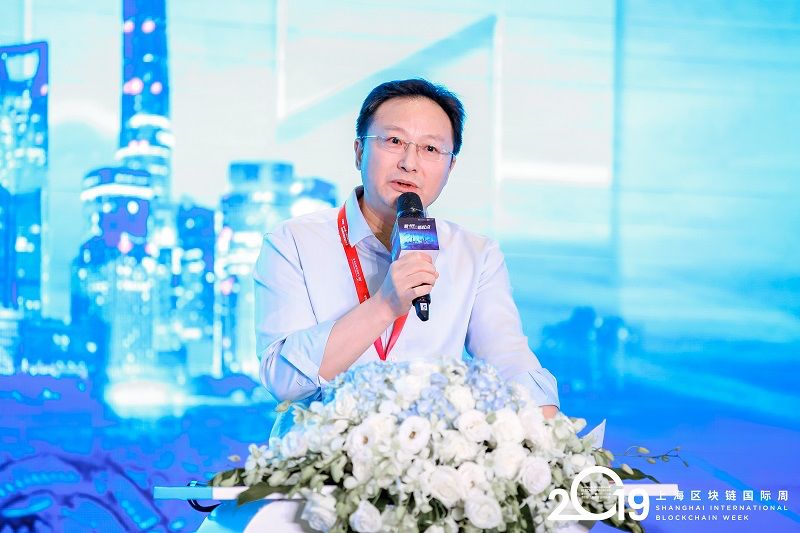
Digital assets and digital currencies are two of the most important aspects of the digital economy. The development of digital assets can not only effectively expand the application scenarios of digital currency, but also lay an important cornerstone for the issuance of digital currency in the future. The coordinated development of the two is the basic driving force and important symbol of the development of digital economy.
Digital assets are the core proposition of digital finance. Through digitization, asset attributes have become more diverse. The digitization of assets cannot be separated from the application of financial technology, and can be expressed as “financial technology = algorithm + data”, in which the blockchain plays an important role. As a trusted machine, blockchain technology creates a new paradigm that connects the various parties involved in financial services, breaking data silos, improving data security, reducing transaction costs, and enhancing risk control capabilities. The awakening of the retail financial market will bring about more profound financial changes.
The cryptocurrency has the potential to become a real currency, but at the monetary level, it is not necessarily the number M0, but it may also be a higher level of currency than the bank deposit currency: Mn. The central bank has always been considered unsuitable for the role of digital money supply. The main concern is that when digital currency is issued to the C-end (retail client, the public), the central bank may face enormous service pressures and costs. This is one of the difficulties faced by countries in the process of developing legal digital currency.
Traditionally, the regulatory paradigm with license management as the key, financial institutions as the starting point, and the opening of accounts in financial institutions as the core needs to be re-examined. First, the license management of institutional access should be transformed into the authority management of user access. Second, business approval, should increase the smart contract review. In essence, under the means of digital technology, digital assets are not only controllable, but supervision can be more precise. In a sense, instead of worrying about the future being uncontrollable, it is better to be more vigilant than to be too strict.
O3
Xiao Feng, Chairman of Wanxiang Blockchain:
Blockchain and digital currency are the best solutions for digital financial systems
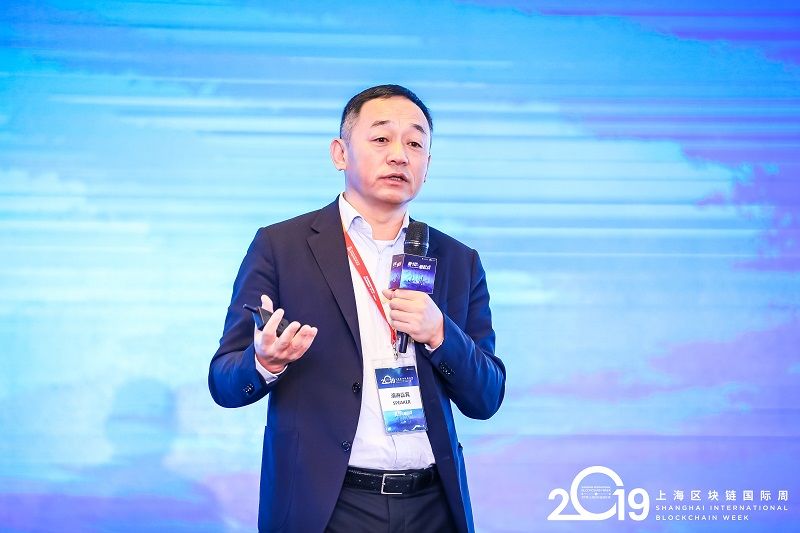
Xiao Feng, vice chairman and executive director of Wanxiang Holdings, and chairman and general manager of Wanxiang Blockchain, Xiao Feng delivered a speech titled “Thinking Caused by Libra”. In his speech, Xiao Feng explored Libra from a currency perspective, a financial perspective, and a business perspective.
Xiao Feng suggested that the central bank allow for scenarios, traffic, users, and commercial organizations with needs to open accounts at the central bank. These institutions can pay 100% of the reserve to the central bank for conversion to digital currency. The implication here is that digital currency is a very special currency, not a universal currency. A digital currency must be a currency combined with a specific scenario and a specific use.
From a payment perspective, bank accounts are at the back end, and the concept of open banking has long been embedded, so the emergence of Libra is not new. Banks are not disappearing in the new technological changes, but are hidden behind the form of APIs. It is a good thing that enterprises are packaged into new products to face users.
Xiao Feng believes that the new generation of digital financial systems requires blockchain. The digital financial system includes digital economy, digital technology, and digital finance. In this system, blockchain and digital currency are the best solutions.
From a business perspective, the application of any new technology has always had two directions, one is to regard new technology as a tool to improve the commercial marginal effect, and the other is to regard technology as a system and reconstruct the underlying logic of the business. The commercial application of the blockchain requires at least some of the technical features of the blockchain. Only new technologies can meet new business and financial needs. In addition, Xiao Feng also elaborated on the infinite loop of distributed economic ecosystem supported by blockchain, including social welfare maximization, incentive compatibility and Pareto progressive.
O4
Taifang founder Vitalik:
The Ethereum 2.0 specification has been written, and DAOs have made many progress.
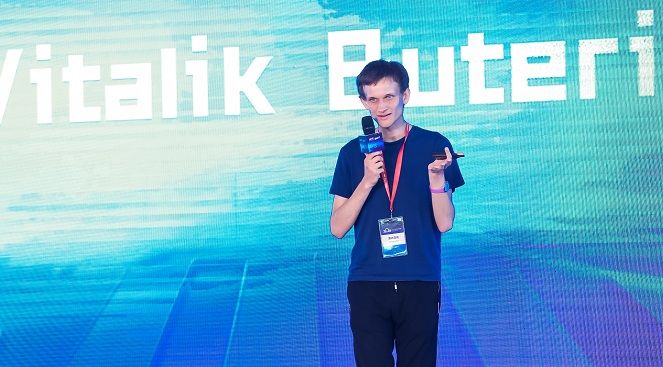
The Ethereum founder Vitalik introduced the latest developments in the Ethereum ecosystem. Vitalik further said: "Ethereum 2.0, as long as you wait a few months to launch, in order to support the development of Ethereum 2.0, 7 teams gathered in Toronto to promote, the current Ethereum 2.0 specifications have been written, everyone has begun to do Third party analysis and received some feedback.
Vitalik said that Ethereum not only sees PoS as a theoretical concept, but how the consensus mechanism will change the efficiency of the blockchain. Vitalik also has the opportunity to think about some of the challenges that face it, such as economic challenges. Additional challenges include scalability. In addition to sharding, Ethereum has made tremendous progress in privacy protection, especially in the general zero-knowledge proof.
In the past year, the DAOs in Ethereum have made great progress. These DAOs have been used for governance, charity, sponsorship and other aspects. Regarding the development of DAOs, it also mentions the vision of using smart contracts to optimize financing methods. DAICO can protect the rights and interests of users and reduce the losses caused by the project side.
In the future, Vitalik made several expectations, including looking forward to better and more credible data sources; making applications better linked to the real world; PoS and shards in Ethereum; more smart wallets, smart financing contracts, etc.; Zero knowledge of existing exchanges proves to improve security; decentralized applications are better.
O5
PwC Global Report:
Blockchain financing is active and the scale is still small
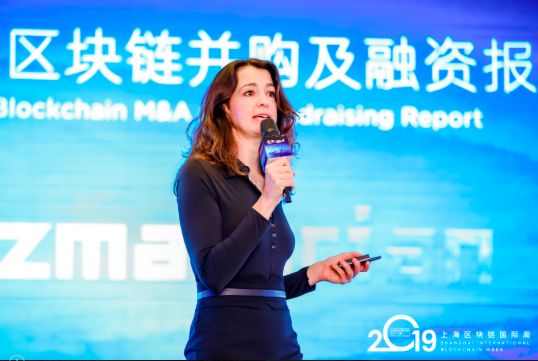
PricewaterhouseCoopers Asia Financial Technology Consultant Lucy Gazmararian released the PwC Global Blockchain M&A and Financing Report. The report analyzes the three dimensions of regional distribution, type and scale of M&A and financing activities. The United States remains the main area of financing mergers and acquisitions. Although the amount of financing in the first half of this year rose by 50% year-on-year, the overall size is still small.
The report believes that there will be three major trends in the blockchain industry in the second half of 2019: First, M&A activity in the blockchain sector will increase. Second, financing activities in the blockchain sector will increase. Third, the participating institutions in the industry continue to expand.
O6
Ma Zhitao, Vice President and Chief Information Officer of Weizhong Bank:
Using blockchain technology to drive social governance model optimization
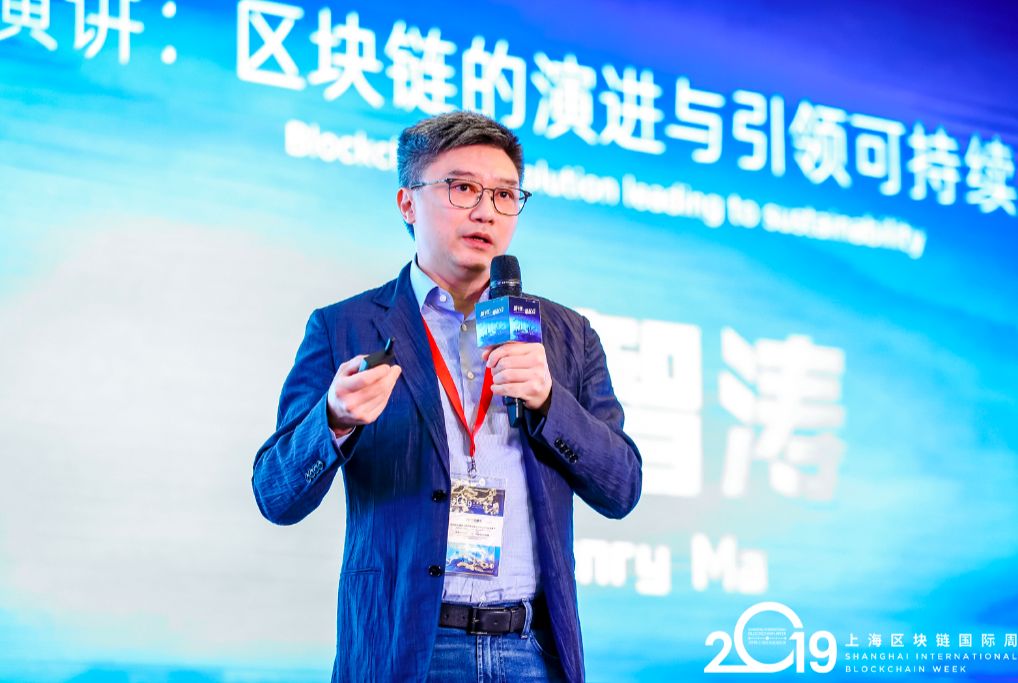
The latest introduction of the micro-crowd blockchain practice, goodness, is a social governance framework that targets the good, implements measurement, incentive, tracking, and supervision mechanisms. This is a reference framework. It is not a single product. It is a reference implementation. If you are interested, you can form an initiative alliance to achieve a good mechanism.
Ma Zhitao believes that from the beginning, the blockchain has brought quite a lot of controversial technology. In the past few years, there have been many commercial applications, but “the scale benefits have not been seen”. Is the blockchain technology limited to images? What is the landing scene of Bitcoin virtual currency? It may not be necessary. He believes that there is a field that may be the potential of the blockchain to exert its great potential – social governance. In addition, he also introduced the scenario under the mechanism of goodness, a low-carbon travel scenario, hoping to build a public alliance chain based on blockchain technology to realize the ecology of green carbon education.
07
Polkadot founder Gavin Wood:
We create systems without trust
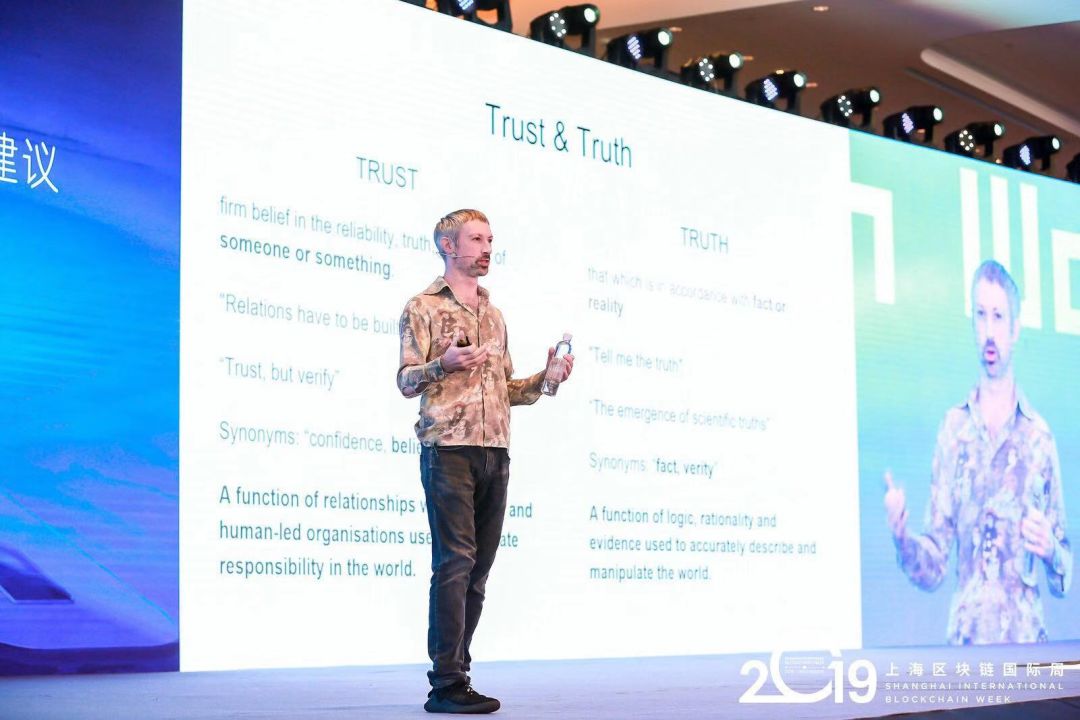
Dr. Gavin Wood believes that cryptography economics can help us create, validate, and prove the principles of the world, reduce trust or zero trust, so that we no longer need to trust others. It's not that we've created a trusted system. Instead, we've created a system that works without trust. We should not establish a credible institution or entity. What we care about is to completely separate trust from this formula. No system is 100% zero trust, and no system is 100% trusted. Most systems we trust are in a continuum.
Boca is a blockchain innovator platform that connects existing chains to other existing Polkadot facilities while ensuring its security while maintaining its performance and efficiency; it now has three main products : Parallel chains, parallel threads, transfer bridges. These three products can be replaced with each other, and you can replace each other as long as you want.
08
Anne stock blockchain system architect:
These three characteristics of trusted deposit certificates are blockchain technology, cross-chain docking, and authority certification.
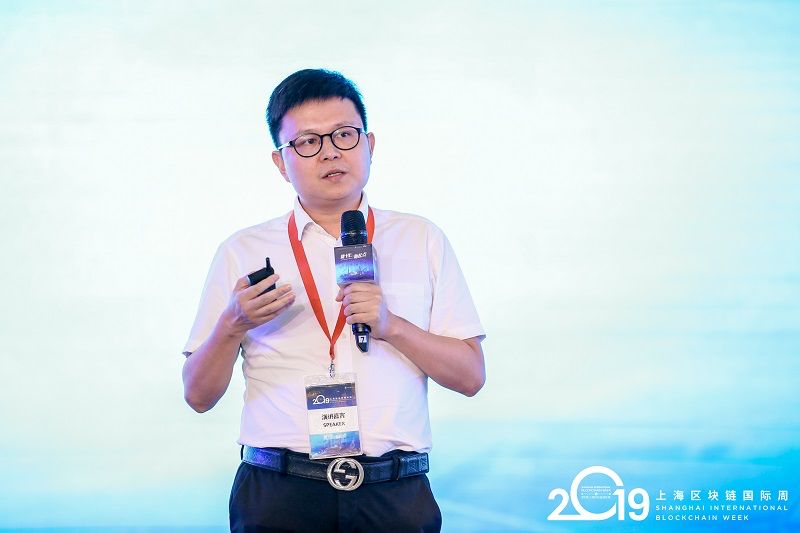
Yang Sheng summed up the three major pain points in the current electronic deposit data: difficulty in depositing evidence, difficulty in obtaining evidence and difficulty in certification. He said that the Trusted Depository System project is a closed-loop process that puts deposits, forensics and litigation on the platform for a complete closed loop. The business model has three major characteristics: blockchain technology, cross-chain docking, and authority authentication.
09
Li Guoquan, Professor of Singapore New Yue Social University:
Inclusive finance and cross-border payment efficiency are important considerations for the central bank to implement digital currency
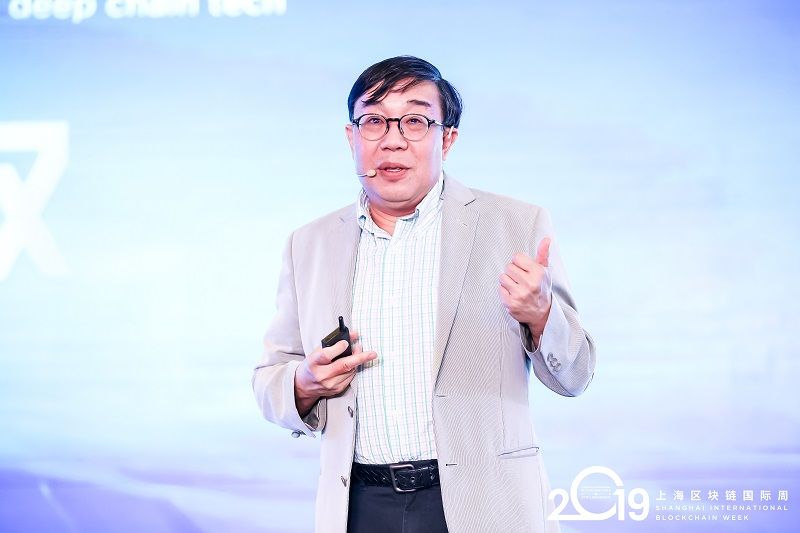
Li Guoquan, a professor at Singapore's Xinyue Social Science University, believes that the central bank has a bit of convergence on digital currencies: 1. The digital version of the central bank's currency should have a potential advantage over the substantive legal currency; 2. The digital version significantly accelerates the transaction speed of domestic and cross-border payments, trading Cost; 3. Everyone agrees that CBDC issued by the central bank can provide stability without restricting innovation; 4. Banks protect credit by creating money, but banks begin to have bad debts, and business models are under great pressure; The impact of cryptocurrencies on international capital flows will have monetary and fiscal policies, while volatility in emerging markets will increase.
In fact, the central bank has eight points of concern in terms of supervision: 1. It has a major impact on the implementation of traditional monetary policy. 2. Before the technology of encrypting currency and digital currency is not mature, when the market is under pressure, everyone will lose confidence. 3. If there are no endorsements of multiple systems (private chain, public chain, alliance chain), it may become a channel for risk transmission in the crisis of trust. 4. Decentralized technology is still not satisfactory and can lead to significant economic and financial damage. 5. Emerging institutions and mechanisms pose many challenges to regulatory and financial stability, especially in stabilizing the financial system. 6. Encrypted currencies and digital currencies will challenge domestic authority. 7. Emerging markets face the challenges of capital flows and exchange rate fluctuations that generate currency spillovers and spread. 8. There may be problems such as money laundering, illegal activities, terrorists, etc.
10
Wang Yunwei, Chief Innovation Officer of Wanxiang Innovation Energy City:
Create an innovative energy city and test a micro-token economy
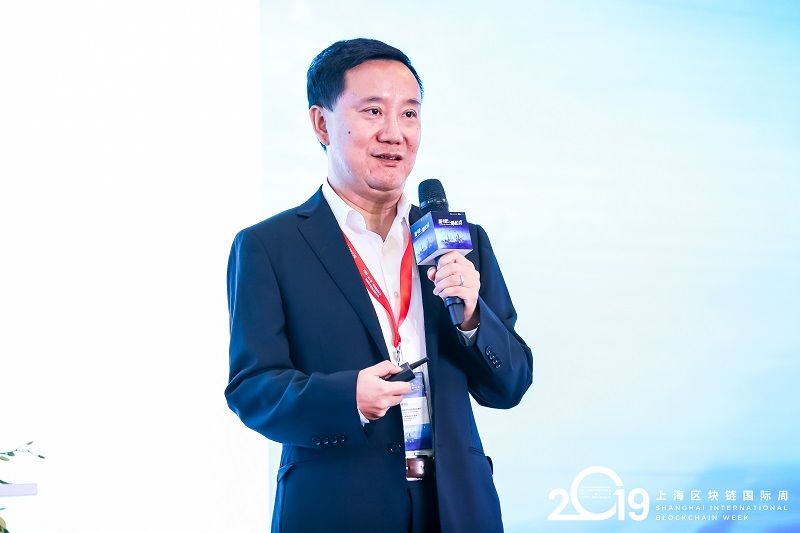
The intelligent manufacturing, distributed urban intelligence, and digital economy contained in the innovative energy city are token-based platforms based on very complex blockchains. Empowered technologies include blockchain and IoT innovation.
He mentioned that in the construction of smart cities, technology updates are often very fast, and technical design is also from top to bottom, but in the implementation of technical design, the city can not be changed very quickly. In this process, blockchain technology can have important implications when faced with these challenges. The significance of this is that, firstly, technically, the blockchain is the storage of trusted data. Secondly, from the economic logic, the smart city can test the token economy, and the third is from the operational logic and business logic. , you can build a metro blockchain platform.
The era of POC is over, but expanding POC is actually very difficult. In the components of smart cities, Wanxiang has achieved some successful use case experiments.
11
Future investment trends under VC vision:
Regulation and business logic are the two major factors affecting investment
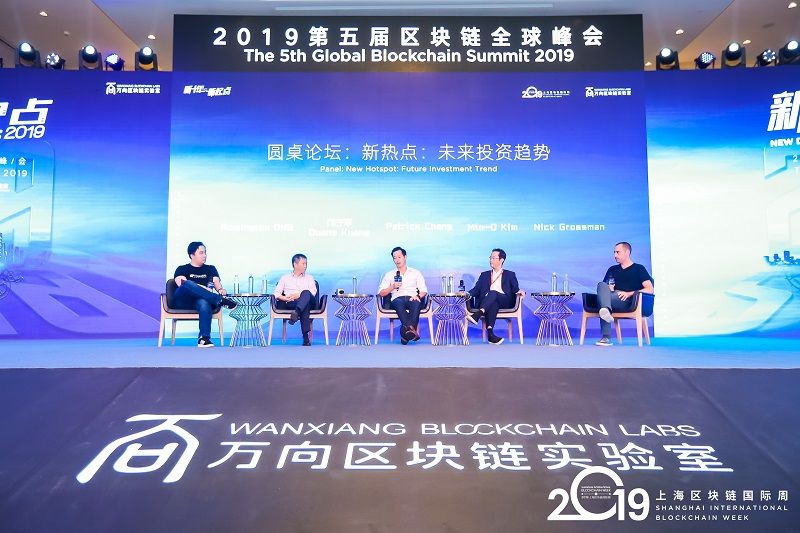
Distributed Capital Partner Remington ONG, Qi Ming Ventures Founding Partner Yan Ziping, Samsung NEXT Ventures Director Patrick Chang, Korea Investment Partner Executive Director Min-O Kim and Union Square Ventures Partner Nick Grossman Focus on Future Investment in Blockchain Discussed.
Min-O Kim, executive director of Korean investment partners, believes that regulation is the biggest constraint on the challenges of traditional investors and investment institutions entering the blockchain sector. However, Zhai Ziping, the founding partner of Qiming Ventures, which focuses on China's market blockchain investment, believes that regulation is indeed an important factor, but more important concerns are derived from the business logic of blockchain technology. However, Zhai Ziping, the founding partner of Qiming Ventures, which focuses on China's market blockchain investment, believes that regulation is indeed an important factor, but more important concerns are derived from the business logic of blockchain technology.
The blockchain is not only in the world of innovation, but also changes the role of VC. Union Square Ventures partner Nick Grossman said the blockchain industry will change the investment methods and strategies of traditional institutions. Investing in cryptocurrencies now requires endorsement of cryptocurrencies, which VC has never done before, and a relatively new change is to ensure the liquidity of digital assets, investors need to participate and become long-term partners.
In addition, Zhai Ziping believes that the integration of new technologies is very important, but more importantly, regulatory technology is also converging, which is a good thing for investment.
12
Senior Vice President of DNV GL:
The enemy of the blockchain’s massive landing is not regulation, but lack of supervision.

Renato Grottola believes that the impact of digitization on trust changes the nature of the transaction and therefore the type of trust required to execute the transaction. Thus, in this respect the blockchain can really influence or reshape our future.
He mentioned that when the transaction involves physical objects, the blockchain technology itself is not enough, which has led to the in-depth study of the Norwegian Legend Society on “digital certification”. Digital certification integrates the blockchain with other activities. Other activities are human-based or digital-based, providing all the necessary elements to ensure that transactions in physical assets or processes are credible.
The blockchain is no longer a proof-of-concept tool. We need to use the blockchain to really make an impact, rather than using it as an eye-catching propaganda tool. The real potential of blockchain technology for society is to promote the shift of the linear economy to a circular economy.
13
Antonio Senatore, Global Chief Technology Officer, Deloitte Blockchain:
The first company to audit cryptographic assets, Deloitte blockchain global CTO detailed blockchain strategy

Antonio Senatore, global chief technology officer for the Deloitte blockchain, said the blockchain is not just a decentralized governance but an ecosystem. Antonio Senatore believes that the future of the blockchain is to consider the blockchain as a platform. Blockchain is not just decentralized governance, it is not independent, not only combined with other technologies, but also an ecosystem. It can be seen that the early successes of the industry are valuable to the ecology. Deloitte offers multi-platform, cross-industry and asset-based blockchain strategies.
Where will the blockchain start? Not all companies need blockchains. In some cases, blockchains do subvert the company's original position, so for each company, whether or not to apply blockchains requires careful consideration.
14
Chengdu Chain An Yang Xia:
Six major security issues and prevention of blockchain
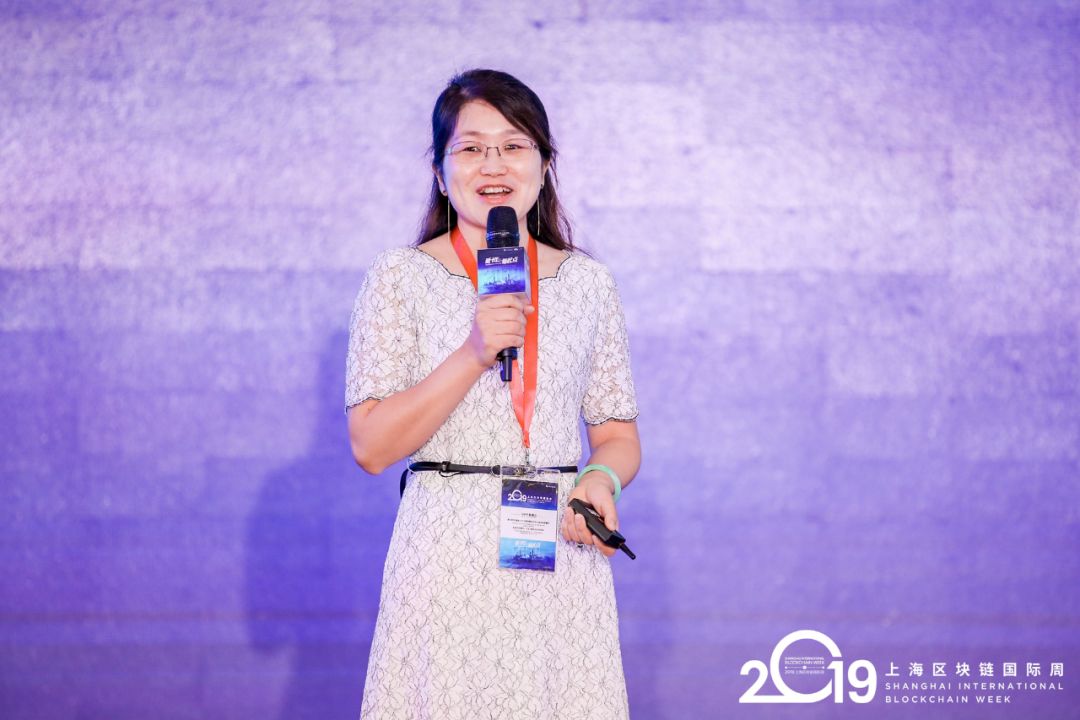
What is the security of the blockchain industry now? Yang Xia summarized the security incidents into six major aspects. The first is the damage caused by system vulnerabilities. This year alone, it is more than 3 billion US dollars. The second is caused by improper use by the user, such as the loss of the private key being stolen. The third is cybercrime, the loss has exceeded more than 5 billion US dollars, such cases do not fully count more than 500 pieces. Secondly, there are dark market black market transactions, money laundering, capital funds and pyramid sales.
Yang Xia believes that some of the problems are caused by the lack of supervision in the blockchain industry, and security companies can be supervised by technology. She said that Chain Security provides a range of products from various dimensions, including VaaS smart contract formal verification technology, Hawkeye security situational awareness, Auditing anti-money laundering system, etc. She hopes that through a little effort, the industry can develop healthily and contribute to us. A little bit of power.
Source: PANews
Editor's Note: This article does not change the original intention of the author.
We will continue to update Blocking; if you have any questions or suggestions, please contact us!
Was this article helpful?
93 out of 132 found this helpful
Related articles
- BTC and ETH: Positioning victory
- Is the Fed a resolution for Bitcoin?
- Line's cryptocurrency exchange is online, 80 million Japanese users can conduct cryptocurrency transactions
- The German government approves a blockchain strategy to prevent stable currency from becoming an alternative currency
- "Encryption Mom": US encryption talent is losing, clear regulation is imminent
- Babbitt column | Investment opportunities in the secondary market are greater than the primary market
- Vernacular than the original chain cross-chain technology






